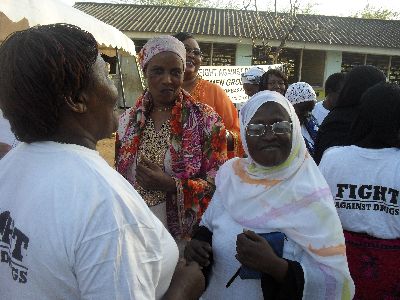
Coast Women in Development
Welcome to the 2010 year-retrospect of the CWID newsletter:
In this edition we feature,
GBV, Drug abuse and HIV/AIDS prevalence in Kisauni
Girl child Education
Demolition of Moroto slums
16 days of activism
Community Capacity Building
CSO of the Year Award Winner
GBV, Drug abuse and HIV/AIDS prevalence in Kisauni
The prevalence rate of GBV, HIV/AIDS and drug abuse is high owing to the fact there are many slums in Kisauni plus the robust tourism industry. Coast Women in Development programs have been aimed at raising people’s level of awareness and understanding. In the past, AIDS was associated with witchcraft and poverty, while drug abuse is still attributable to poor attitude of parents towards education, unemployment, poverty and stigma.
CWID has also been using theatre and songs by youths and women groups to sensitize the community on how drug abuse contributes to GBV and HIV/AIDS.

Women
from Mombasa County dancing a
song
with the message ‘fight against drug abuse’.
Girl- child Empowerment.
CWID`s initiatives such as guidance, counseling, support and the introduction of girls’ education forums have had great impact in the community. Through the forums, girls have been empowered to speak out against violations of their rights and commanding support from teacher counselors and their academic performance has registered improvement hence reduction of early marriage cases.
We have assisted pupils from St. Mary Cliff Girls’ Primary School in Tudor by providing stationary (clipboards and mathematical sets) for use during their Kenya Certificate of Primary Education. We also provided food for change from their normal diet (provided by the government) in order to motivate them during the exams period. Most of the pupils are from the settlement of Juakali and Mworoto. The school has a lot of challenges that has hindered the pupils from doing well in the National Exams since 2003.
Demolition of Moroto slums
Residents of Moroto settlements that are near our offices were evicted from their homes. It was alleged that there was a court order released to evict the residents if they had not left the land by a given date. Some of the residents had lived there for their whole lives, so they had no other home apart from the slums.
The poor residents were traumatized when their houses were trampled down and around 300 families were left homeless. Amongst them were about 450 orphans and several widows who were being sheltered within this region. This was a major setback because the women and children were exposed to GBV. Coast Women in Development in collaboration with other leaders and the former area councilor donated food and basic needs to these families and in following up the legal aspects of issuing of the land by sale to an area politician who was ruthless enough to armed policemen and council askaris on the vulnerable women and children. The case is still in court.
|
woman from Moroto slums wails at the
sight |
Women and children in awe in Moroto settlement area
|
16 days of activism.
The 2010 Theme was Structures of Violence: Defining the Intersections of Militarism and Violence against Women.
Women at the grassroots level and those who are at the workplace where there is no legal system and policy which offer them protection against GBV were our main focus. The message which was depicted from the theme was shared and put across effectively.
Prevention and awareness of gender-based violence and practice of Human Rights was the major voice being spoken out loud during this period. The campaign against gender-based violence has been practiced over the years and so is the practice of human rights in the human race.
Another major task of the 2010 campaign for us was the campaign against child marriage which is a human rights violation with social, cultural and economic dimensions, including high rates of maternal mortality and injury which is prone at the Coastal Province of Kenya.
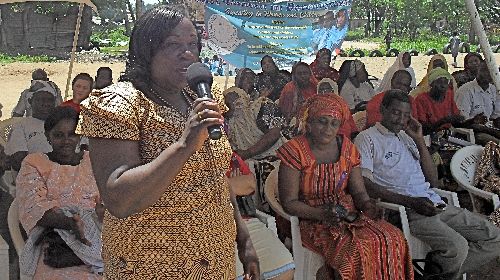
Kilifi
Deputy Mayor Madam Salma gives a speech to the participants on the
16days of activism launch in Mishomoroni.
One clear lesson CWID has learnt is that changes we hope for will never be achieved by CWID and its network members alone. We require concerted action by many players. There are also many other initiatives underway to build capacity among grassroots’ communities. The use of the word ‘we’ could therefore be understood to mean change agents in a collective sense, rather than CWID and its network members in particular.
As a result we hold regular workshops for collective capacity building.
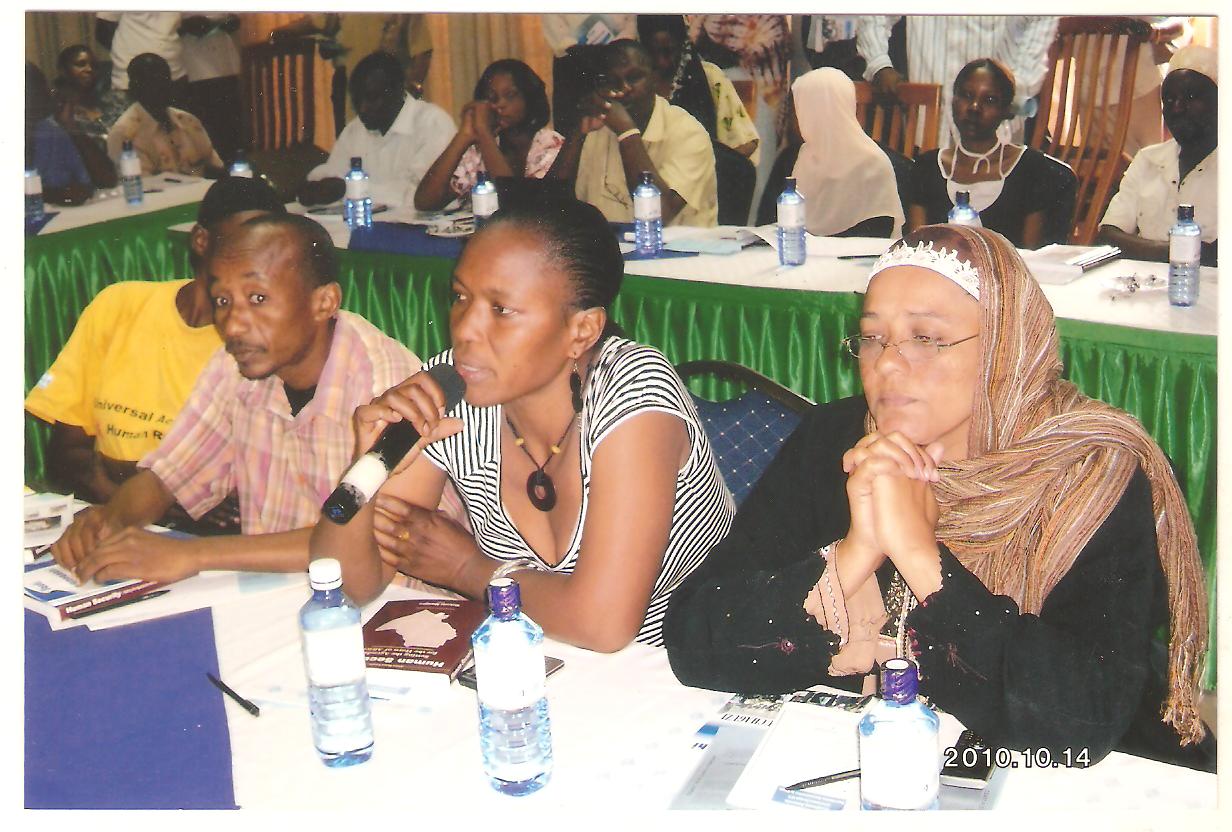
CSO of the Year Award Winner
The climax of the advocacy was on the 10th December 2010, after 5years of existence, vigorous advocacy, empowerment to the grassroots and a volunteerism heart, Coast Women in Development won the Civil Society Organization of the Year Award 2009/2010. This was very encouraging because our work is recognized by the community thus being voted the best despite the fact that we have minimal resources since getting a donor has been a challenge to the young organization working at the grassroots level.
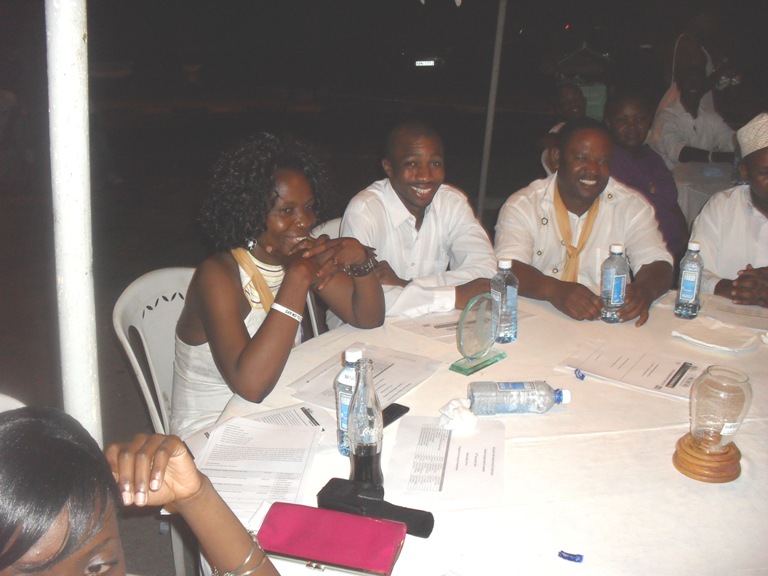
Above:CWID
staffs and network members celebrating their
victory
after being awarded the CSO of the year award
Appreciation
We appreciate the efforts of MUHURI, Office of the High Commission for Human Rights (United Nations Human Rights) and the Pwani Society for their motivational and focused project of recognizing the human rights’ work of the organizations, individuals and the government sectors. May the Almighty bless all of you to keep on with the same spirit.
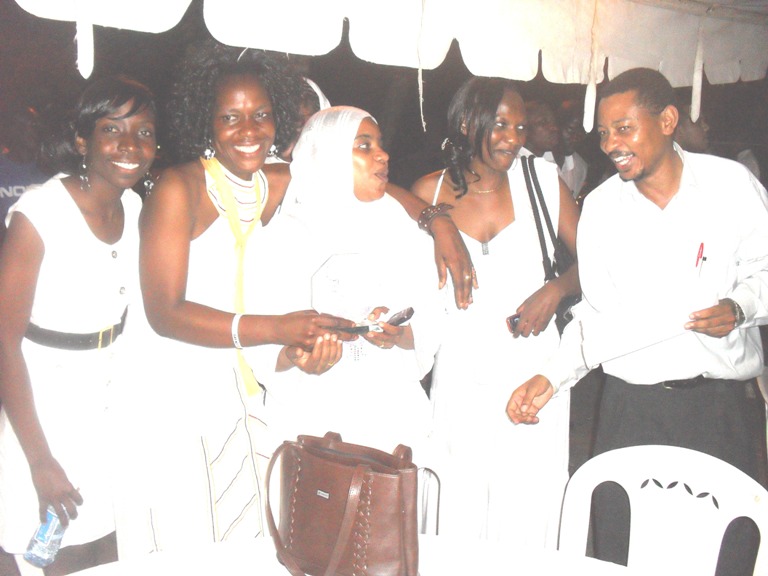
Above:CWID
staffs and network members celebrating their
victory
after being awarded the CSO of the year award